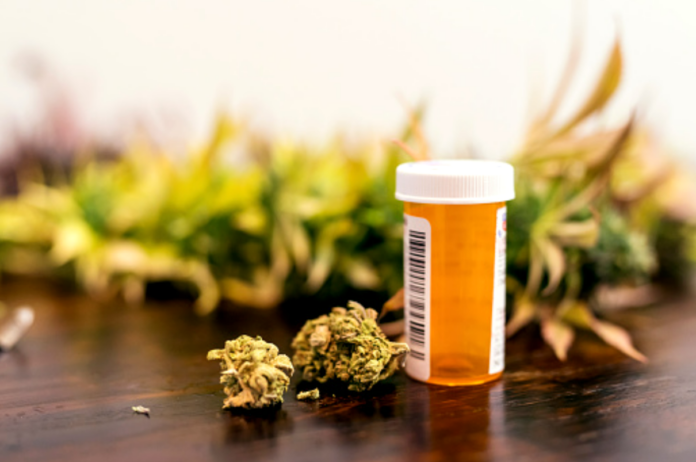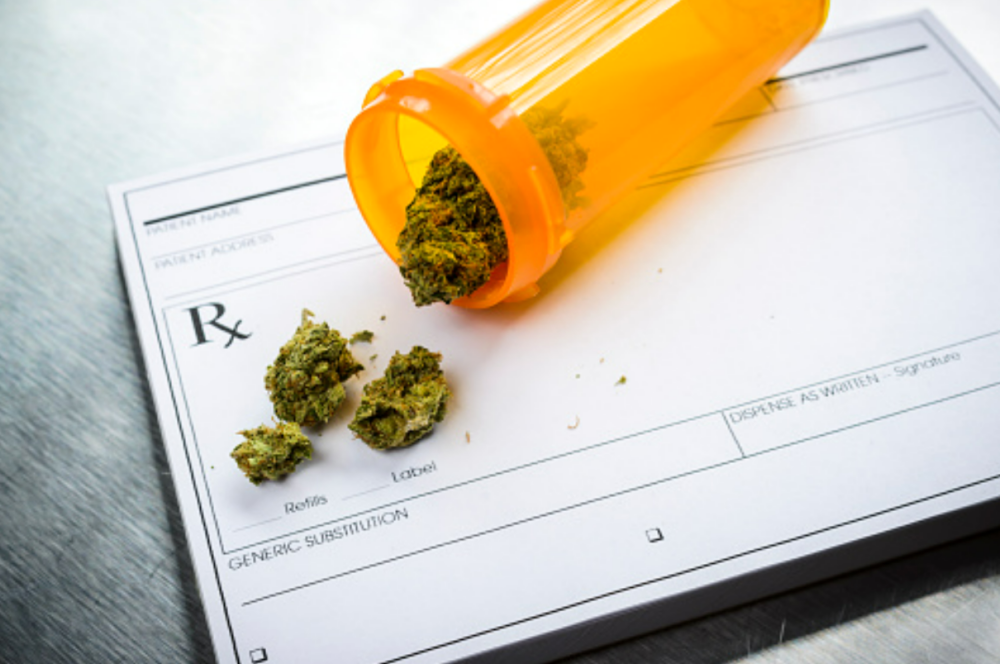
Doctors and patients alike are becoming constantly vigilant and interested in the medicinal use of cannabis. The fingers generally point to the use of CBD and medical cannabis for chronic pain conditions. Some studies suggest that medical marijuana can be a much better option to treat pain as compared to ‘in-use’ prescribed drugs like opioids. Even though there isn’t much evidence, there is no denying how well medical marijuana is.
One of the most convenient ways to get access to medical cannabis is by applying for a medical marijuana card on onlinemedicalcard.com. Medical cannabis is thought to be beneficial in the treatment of a variety of medical conditions and symptoms, and there is considerable debate about the safety and efficacy of cannabis for medicinal purposes.
The Center for Disease Control released a paper that concluded on how chronic pain was the most common reason for people in the United States to seek medical attention. According to the report, an estimated 20.4 percent of U.S. adults, or approximately 50 million people, experienced chronic pain in 2016.
Medical marijuana has been used in medical treatment for over 4000 years now when the first traces can be found in Ancient China. Apart from reducing and managing pain, it was used for a variety of conditions including digestive issues, psychological disorders, and pain relief.
The aforementioned statistics and studies are clear indicators of how well medical marijuana can be used to treat and manage pain. How it works is explained in detail down below –
Medical Marijuana for Chronic Pain

When compared to prescribed painkillers like benzodiazepines and opioids, medical marijuana is garnering much attention as a better alternative. Cannabis can be impactful in dealing with certain types of chronic pains like the ones caused by moderate to severe nerve damage or swelling. Research conducted in 2015 suggested that marijuana can be highly effective in dealing with the aforementioned pain. With many clinical trials yielding a positive response, scientists concluded that cannabis and many cannabinoids can be an effective way to treat and manage nerve pain.
Another study that was conducted in 2016 hinted that marijuana use in cancer patients reduced their opioid use by 64%. Not just that, the use of marijuana also helped them with a better quality of life and did not cause nearly as many side effects of the medication.
How Does CBD Help Reduce Chronic Pain
A brief recap on Cannabidiol (CBD) suggests that it is a cannabinoid of cannabis and does not give a high as its cousin Tetrahydocannabidiol (THC). Now, coming to its properties, CBD indulges in a strong activity with the Endocannabinoid System (ECS) and the receptors that surround the ECS. This means that a lot of the functioning of our body and its homeostasis can be influenced by cannabidiol. CBD increases the production of anandamide in our body, this chemical compound helps regulate pain and reduces the perception of pain in our body, all the while helping with our mood.
Our body has an Endocannabinoid System which regulates the flow of equilibrium in our body by receiving and interpreting cannabinoid signals through various receptors. Our bodies also produce cannabinoids naturally through the ECS and these cannabinoids help in sleep and regulating pain stimuli.
1. Medical Cannabis Use Decreases Opioid Use

Seeing how bad the opioid misuse has gotten over the past decade or two, people in the USA have started to accept medical cannabis as a much better alternative. Not just as an alternative medication to opioids, the plant’s effectiveness is such that it has also helped in reducing the usage of opioids in managing non-cancer pains too.
Studies in the field of reviewing a substitute of opioids and prescription drugs, Cannabis stood out. Not just that, medical cannabis use is also linked with improvement in the quality of life, even 6 months after the study. This increasing use of cannabis for severe and prolonged pain has led to a decrease in the use of opioids.
Medical cannabis can be the answer to the ever-growing opioid addiction crisis and the numerous deaths associated with the same.
2. Medical Marijuana Helps Detox From Opioids

Being as addictive as it is, weaning off opioids can be a tough task to handle and get along with. There are severe withdrawals that one faces, and we haven’t even started talking about the chances of relapse after a period of sobriety. This addictive and harmful nature of opioids has led to more than 300,000 opioid-related deaths in the United States alone.
This large-scale use of opioids has led to many resorting to illicit drugs like heroin, and illegally obtaining opioids. There are few treatments that are available for such a crisis, or so we thought. As per a study, the use of CBD drastically reduced the cravings for heroin, while reducing anxiety as well.
3. Medical Cannabis Use Decreases Benzodiazepine Use

Benzodiazepines are strong prescribed drugs that are used to sedate and suppress patients with anxiety and neurological disorders. They are pretty effective, but that effectiveness comes at the price of having many side effects. The working of the drug might be a little unclear, but it sure does work on neurotransmitters to suppress neuron activity.
A small-scale study was conducted to see how people using benzodiazepines felt after using cannabis. To the surprise of many, the results were not just in favor of cannabis but had a prolonged positive effect on people using it. Two months after the research, more than 30 percent of the participants had stopped using benzodiazepines. 4 months after the research the number rose to 45 percent, who discontinued their benzodiazepine treatment.
4. Medical Marijuana Helps Detox From Benzodiazepines

Benzodiazepines are very strong depressants that work on the central nervous system. This class of medications is used to treat seizures, panic attacks, bouts of anxiety, and care is also used as a muscle relaxant in many surgeries. Even though it has such multifarious uses, the worst fact about the medication is how addictive it is.
People can get hooked onto the medication after the first use as well, and a strong physical dependency might just take a week to build. Withdrawal from these can result in sleeplessness, severe anxiety, excessive activity of the brain, and emotional instability. So, the conditions it was supposed to treat and help manage, emerge in an aggravated state after stopping the use of benzodiazepines.
CBD can be a helping hand to people trying to wean off benzodiazepines. It helps on all the accounts mentioned above that take place during a benzodiazepine withdrawal. It can particularly help –
- Reducing inflammation and tremors
- Managing anxiety
- With better sleep
- Reducing addiction, as CBD itself has no potential of addiction.








